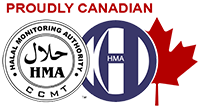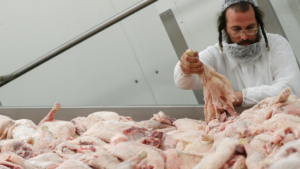For the past two decades, the worldwide halal business has expanded rapidly. However, what are the halal criteria and requirements for halal certification? This is one of the most challenging questions we have ever attempted to answer because everyone in the halal sector appears to have their interpretation of what halal means to them.
Many Muslim-majority countries appear to have halal standards, which may or may not be consistent with other nations. Similarly, several halal certification agencies provide halal certifications based on their criteria, which may or may not be the same as those granted by different certification authorities. We will attempt to answer this question based on certain guiding principles from the Quran and the Prophet’s (PBUH) Sunnah. Target halal food or halal meat Toronto, Canada is the essential minimum halal criteria that everyone seems to agree on, regardless of whose halal standard they follow.
Muslims consume food, cosmetics, and other items in accordance with Islamic requirements. The right to consume goods is unalienable. For decades, Muslims have lived in line with Islamic rules, such as food. They had little trouble determining the ingredients for consumption. Because the items eaten were of a more superficial kind and most of a domestic nature. However, recent technical discoveries and improvements in the food industry have resulted in product diversity and content complexity.
In reality, as the name indicates, the most basic concept of the halal food standard is to ensure that food produced in the Islamic faith is labeled as halal. Halal cuisine is sought in our nation and worldwide, where there are 1 billion Muslims.
Three standards in Halal Food certification were agreed upon and went into effect at a conference held by the member nations of the Islamic Countries Standardization Institute due to research conducted under the framework of the Organization of Islamic Cooperation. The following are the principles of Halal Food Standards.
- The concept of halal cuisine encompasses the food’s religious conformity and its cleanliness, sanitary quality, and acceptability in terms of human values.
- The concept of haram food encompasses the conformity of food with religious standards and the quality of cleansing and hygiene. It is unsuitable in terms of human values.
- -Halal refers to something permissible or legal. Some various foods and foods are not explained as banned in the Qur’an and hadith.
- Haram refers to something that is forbidden or illegal. Eating forbidden food and committing sin are strictly prohibited by religion.
Halal food standards contain Islamic laws that must be observed in various phases of the manufacturing process, including sourcing, preparation, processing, categorization, packing, labeling, regulating, loading, unloading, transportation, distribution, and storage.
Halal foods contain only components allowed for consumption by Muslims and have never come into touch with non-halal foods.
Foods that are halal include:
- Meat (beef and lamb) and fowl (Zabiha)
- Scale-covered fish
- Extracted from Zabiha animals, animal-derived goods
- All allowed animal species’ milk and eggs
- Except for those that produce drunkenness, vegetables, fruit, and grains
- Except for those that have intoxication, all vegetable components
- There will be no alcohol of any kind.
What are the Benefits of Halal Standards?
As Muslim customers worldwide become more aware of Halal cuisine, demand for natural Halal foods rises. Aside from HALAL meat, a number of other food-related concerns have lately received attention. Flavors, oils, enzymes in cheese, and some other derivatives, as well as new food processing technology, have further muddled the picture.
Alcohol and pig derivatives can be found in a wide range of items, and they must be detected and avoided for meals to be deemed halal. Establishing and implementing Halal protocols in manufacturing consumable and non-consumable commodities has become critical for consumers and producers.
Canada’s Food and Drug Regulations have been updated to include new halal food labeling standards. The word “halal” cannot be used in labeling, packaging, promoting, or selling a product unless the name of the person or entity that certified the food as halal is included on the food label or package, or in the advertisement or sales materials, according to new regulations.
Please keep in mind that the HMA logo is a trademark/certification mark that has been registered. HMA’s devices retain its property, such as labels, tapes, stamps, and ties. All intellectual property rights are included.
The HMA logo/trademark is not licensed or permitted to be used in any printed or electronic media by any organization or corporation. To preserve the HMA insignia, the HMA secured the logo trademark. Unauthorized use of the HMA logo or trademark may result in infringement legal action.
Certified firms may submit a written request to the HMA for permission to use HMA logos/trademark marks on their printed materials, websites, and other materials. The following terms and conditions will apply. HMA will supply the right form of the HMA certification logo after it has been approved. To make a request, do not hesitate to contact the HMA office.



